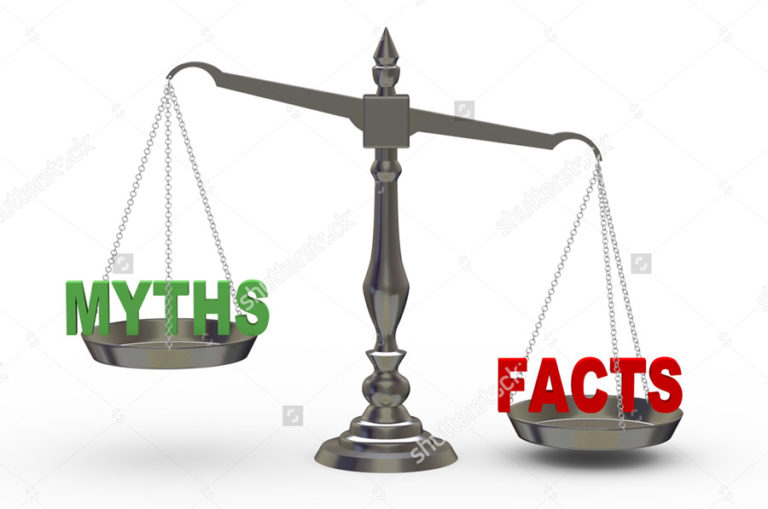Myths and Facts About Hearing Aids

The internet can be a blessing or a curse when it comes to health care. Specifically, when it comes to hearing aids it is nice to be able to research the various products available and read the reviews. Yet, with all the information out there it is hard to tell what is real and what is fiction. To help I complied a list of myths I often hear and explain why they are false.
Myth: Hearing aids restore hearing to normal just as prescription eyeglasses can restore vision to 20/20.
Fact: Hearing aids do not restore hearing to “normal” or “cure” hearing loss. Hearing aids simply amplify the parts of the speech signal that your ear is missing while reducing other background sounds. So even though they do not cure hearing loss they can significantly improve your hearing and listening abilities which can substantially improve your quality of life.
Myth: You can save time and money by buying hearing aids online or by mail order.
Fact: A hearing aid that is not properly fit to your ear and hearing loss is of no benefit to you. Hearing aids are only as good as their programming. Have you really saved money if you never wear the hearing aid you purchased?
Myth: A hearing aid will damage your hearing.
Fact: A properly fitted and maintained hearing aid will not damage your hearing.
Myth: A milder hearing loss is not bad enough for a hearing aid.
Fact: Everyone’s hearing loss and listening needs are different. By working with your audiologist, you can determine if a hearing aid is needed and how much it will improve your hearing.
Myth: Wearing two hearing aids is not necessary.
Fact: We normally hear with two ears. Binaural (two-eared) hearing helps us localize sounds, assists us in noisy settings, and provides natural sound quality. Most people with hearing loss in both ears can understand better with two aids.
Myth: The invisible hearing aids worn in the ear are the best hearing aids to purchase.
Fact: There are several styles of hearing aids, and all are “state of the art.” What is most important is that you purchase a hearing aid that accommodates your hearing loss and your listening needs. Just because your friend uses a particular hearing aid style does not mean you have to (or should) use that style. Your friend’s style of hearing aid may be a totally inappropriate prescription for your needs.